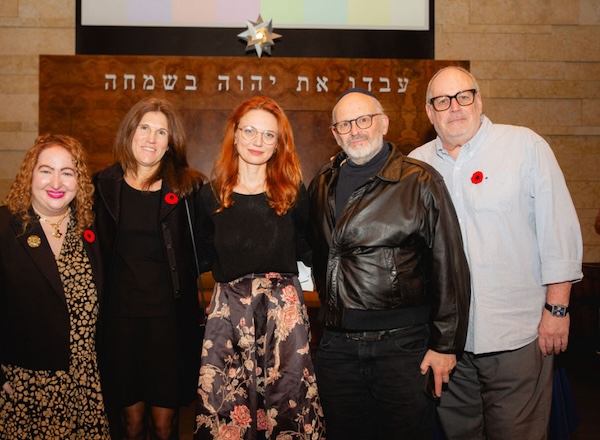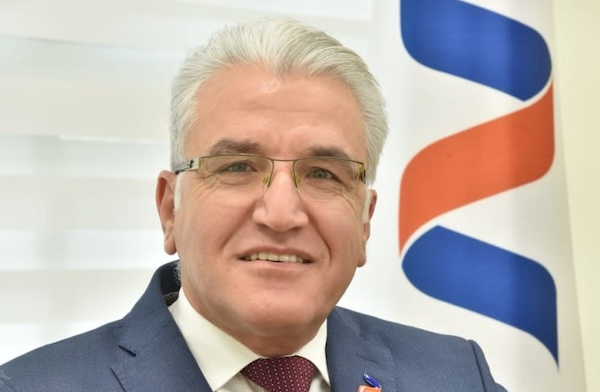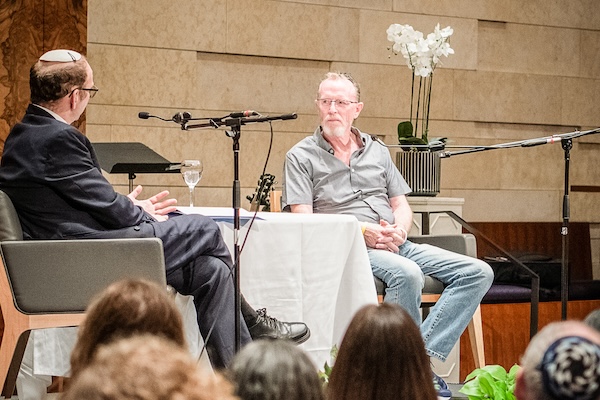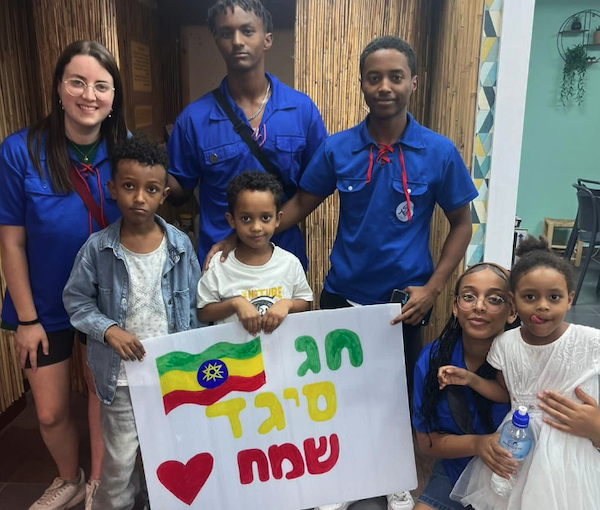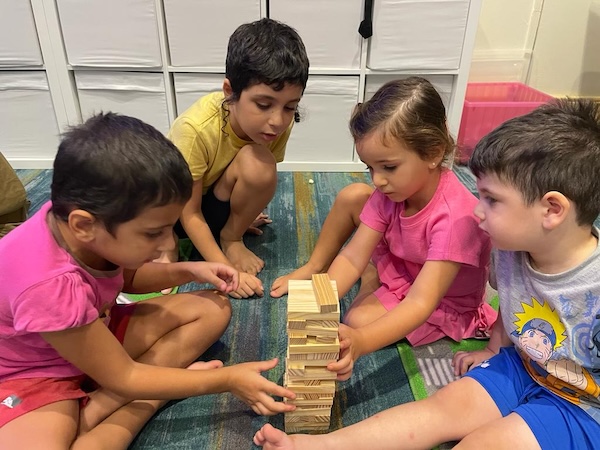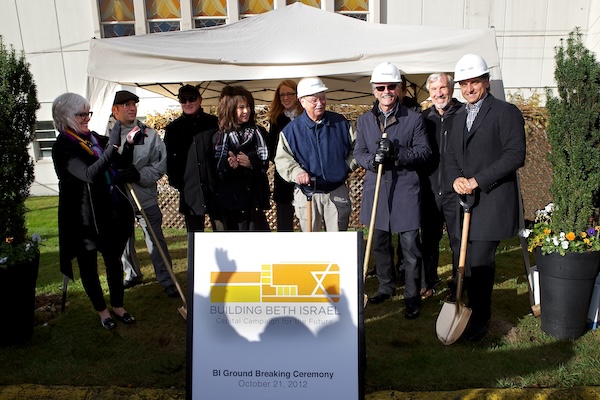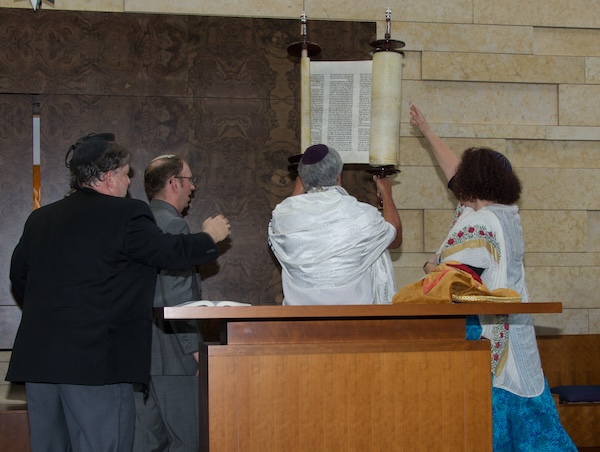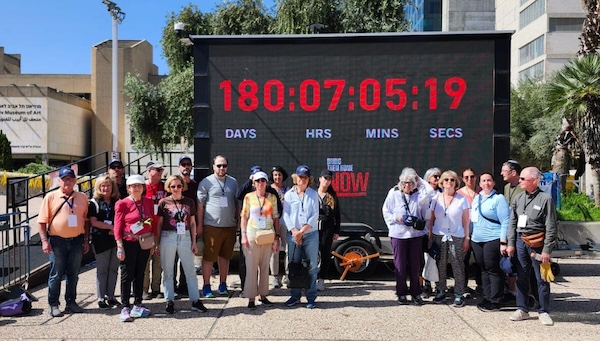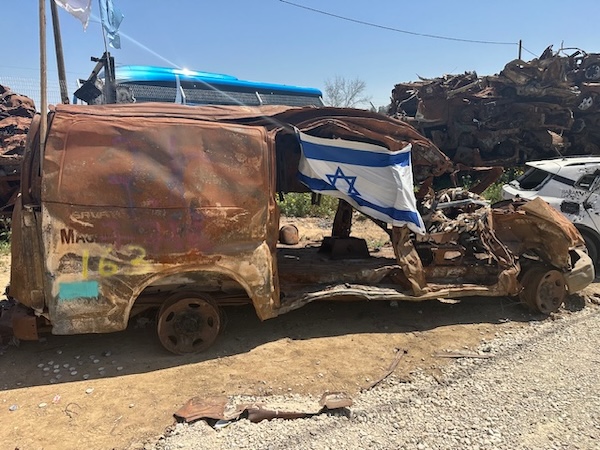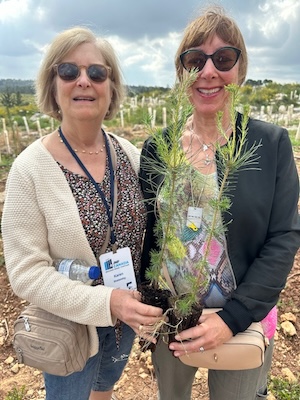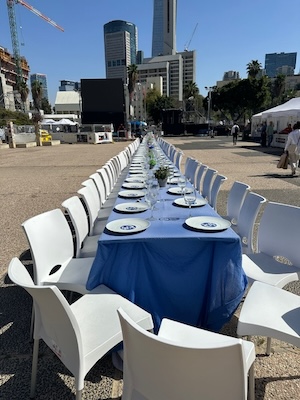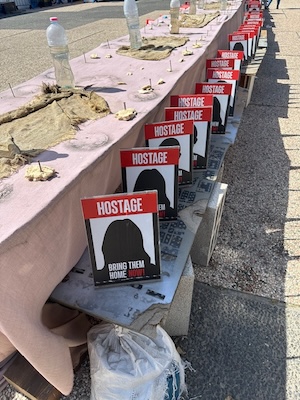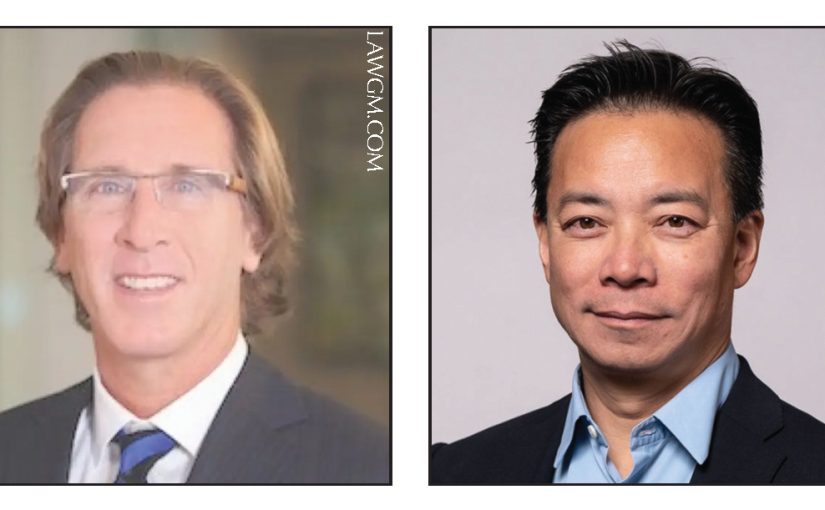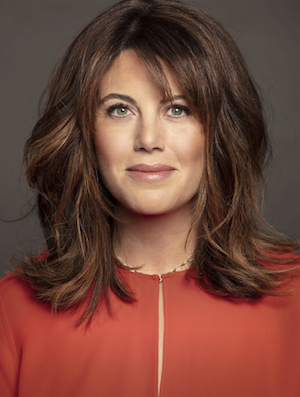For decades, conversations about antisemitism and racism have been running on separate tracks, Prof. Magda Teter told the Independent. But there is a connection, she said, and, in her March 4 talk at Congregation Beth Israel, she will explain that link.
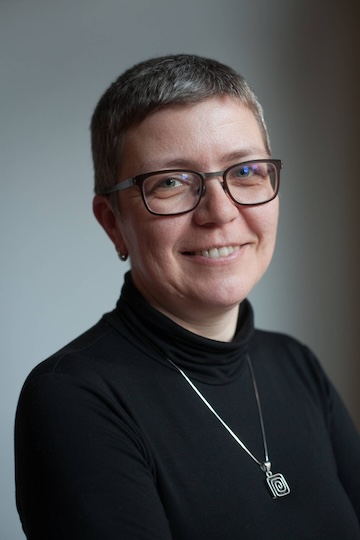
The lecture, called Reckoning with the Roots of Antisemitism and Racism, is co-presented by the synagogue and the Archdiocese of Vancouver. Teter, a professor of history and the Shvidler Chair of Judaic Studies at Fordham University, is president of the American Academy of Jewish Research. She is the author of several books, most recently Christian Supremacy: Reckoning with the Roots of Antisemitism and Racism (2023). Her book Blood Libel: On the Trail of An Antisemitic Myth (2020) won several awards, including the 2020 National Jewish Book Award. Other publications include Sinners on Trial: Jews and Sacrilege after the Reformation (2011), Jews and Heretics in Catholic Poland (2006) and many articles (in English, Hebrew, Italian and Polish).
Teter has a new book coming out soon, called Blood Libels, Hostile Archives: Reclaiming Interrupted Jewish Lives, which, according to the summary, “explores two places: Trent, in northern Italy, and Sandomierz, in eastern Poland … both had been sites of anti-Jewish libels falsely accusing Jews of killing Christian children, Trent in 1475 and Sandomierz twice – in 1698 and 1710; in both, the instigators of the Jews’ persecution left unique and extensive archives, both towns have physical remnants of these deadly affairs, and, finally, neither town has an existing Jewish population. Yet, centuries later, these anti-Jewish libels have not been relegated to the past; in both towns, their legacies still reverberate today.”
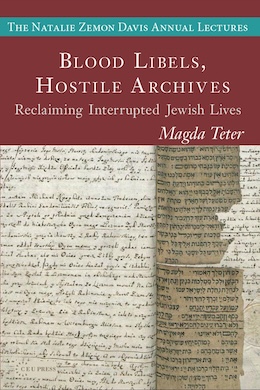 “There has been a lot of scholarship about blood libels – the false accusations against Jews that emerged in the Middle Ages, charging them with killing Christian children,” said Teter. “Scholars, including myself, have analyzed the trials, the rhetoric, iconography and anti-Jewish works to understand how these anti-Jewish ideas emerged and spread. What is largely missing from this scholarship is the real, not the imagined, Jews – those Jews whose lives were destroyed by these accusations. So, what this book is trying to do is to recover the lives of Jews who were subjects of these accusations and tell us about them, how they lived, rather than how they were imagined by their accusers. The tricky part of this is how you recover their lives from documents that were created for the purpose of showing Jews’ guilt and how cruel, heinous and hateful Jews were. So, this book is trying to do just that: to peel through the layers of hostility for the glimpses of lives that were destroyed. It matters. This allows us to wrest the story away from the Jews’ accusers.”
“There has been a lot of scholarship about blood libels – the false accusations against Jews that emerged in the Middle Ages, charging them with killing Christian children,” said Teter. “Scholars, including myself, have analyzed the trials, the rhetoric, iconography and anti-Jewish works to understand how these anti-Jewish ideas emerged and spread. What is largely missing from this scholarship is the real, not the imagined, Jews – those Jews whose lives were destroyed by these accusations. So, what this book is trying to do is to recover the lives of Jews who were subjects of these accusations and tell us about them, how they lived, rather than how they were imagined by their accusers. The tricky part of this is how you recover their lives from documents that were created for the purpose of showing Jews’ guilt and how cruel, heinous and hateful Jews were. So, this book is trying to do just that: to peel through the layers of hostility for the glimpses of lives that were destroyed. It matters. This allows us to wrest the story away from the Jews’ accusers.”
Teter, who isn’t Jewish, grew up in communist Poland where, she said, “Jewish topics were a taboo.” Nonetheless, Poland is “a country whose history is so tightly intertwined with Jewish history, so I was very conscious of Poland’s Jewish past,” she said. “I wanted to learn more.”
This led Teter to Columbia University, where she earned a PhD.
“One of the inspirations for me in taking on difficult topics is the arduous path of Jewish-Catholic dialogue and reconciliation in the aftermath of World War II,” she explained. “It was a process of hard and honest conversations. What these conversations and subsequent documents that emerged show is that hard truths don’t have to tear groups apart but can bring people closer together. But, I think, in the last several years, we have been losing the ability to talk to one another on difficult topics. We, as a society, tend to look for affirmation or we walk away, block or dismiss. We closed ourselves in comfortable bubbles.
“My last book picks up threads that may have been left unexamined in the history of antisemitism – the questions of power and domination,” she continued, referring to Christian Supremacy. “As for the responses, in general, people are initially taken aback by the book’s title … but then, if they are willing to read or listen, they become appreciative of my pointing to something that they had not noticed before. That’s my goal in teaching and writing – I am not looking for affirmation, I hope readers or listeners will leave with a few ‘new thoughts.’ I also hope to learn from the readers and listeners. Their questions often help me clarify my thoughts as well and often inspire ‘new thoughts,’ too.”
Teter, who became a fellow of the American Academy for Jewish Research in 2016, has served on the executive board and, at one point, as treasurer of the academy. She was elected president in 2022 for a two-year term, and is currently in her second and last term.
“It is the oldest organization of scholars in Jewish studies in North America,” she said of the academy, which was founded in 1920.
“While at the beginning it focused on amplifying the scholarship of the fellows,” she said, “since the beginning of this century, the academy has been focused on programs intended to cultivate the next generation of scholars. For example, the academy awards the annual Salo Baron Prize for the best first book in Judaic studies, runs the biennial summer graduate student workshop and the early career workshop for untenured faculty and, with the increasingly diminishing opportunities for graduate student research, the academy offers dissertation research grants.”
Last month, in an interview with The New York Review of Books – for which she has written – Teter was asked what responsibility historians have to be guided by what’s happening in the present. She cautioned, “We must allow the past to speak on its own terms, even when asking questions that are pertinent to the present.”
“We are all shaped by our own experiences and contexts,” Teter told the Independent. “We often ask questions that are relevant to our own lives. But these may be questions that people of the past did not ask. We have to try to understand their lives on their own terms. They did not know what we now know. They did not hold the same values we do. So, it’s OK to ask about how women or non-binary people were treated in the past, or how people thought about the environment, or how they responded to pandemics, but we should not try to make them feminists or environmentalists.
“Let me give you another example, the world is now animated by the Israeli-Palestinian conflict, and many ask questions about how these different peoples engaged with each other historically, how they thought about one another – if they thought of one another. To find answers, we go to historical sources, but we have to read these historical sources on their own terms, not look only for examples that confirm what we already believe. We need to let them speak in the language and the values of the time in which they were created, not through the lens of now.”
There are other lenses too, and ways of connecting the past with the present. In a 2023 interview with JTA, Teter said, “Understanding Jews’ place in history and society, on their own terms but also on the terms imposed on them from the outside, holds much relevance today.”
“There are two vantage points from which Jews’ place in history can be seen: from the outside, and how Jews experienced their own lives,” she told the Independent. “The 2023 interview took place before Oct. 7 in the context of a recognition by the New York Jewish Week of my role in giving Jewish life in the Bronx more visibility, a borough that has now one of the smallest Jewish populations in New York but one that was, in the mid-20th century, proportionally, the most Jewish borough in New York, with nearly 50% of the population being Jewish.
“But that sentence from 2023 can be illustrated in 2025 in another way. Today, we are still reeling from the aftermath of Oct. 7. One of the main topics that concerns Jewish communities around the world is the rise of antisemitism. But when we talk or write about the history of antisemitism, we typically talk about what antisemites think or do – that is, we discuss it in terms ‘imposed’ from the outside, but what I am asking us to do is to also pay attention to Jews’ lived experiences, and not to refract that experience solely through the external lens. It is something that my forthcoming book is trying to do.”
When asked whether she was, in this moment, hopeful, despondent about or resigned to what humanity is capable of, Teter said, “We live in very dark times. I am very depressed when I look at the ruling elites, whether political or corporate. I am also despondent about the role social media is playing in our society – robbing us of our ability to talk to one another, to argue and reason with one another. I am most hopeful when I am with my students, when we have time to spend together and patiently wrestle with difficult topics or texts. When humans take that time to stop, read, think and talk, things can become better. Social media and the current commercial media environment push us to react without discernment.
Prof. Magda Teter’s talk at Beth Israel is a free event, but registration is required at bethisrael.ca.

